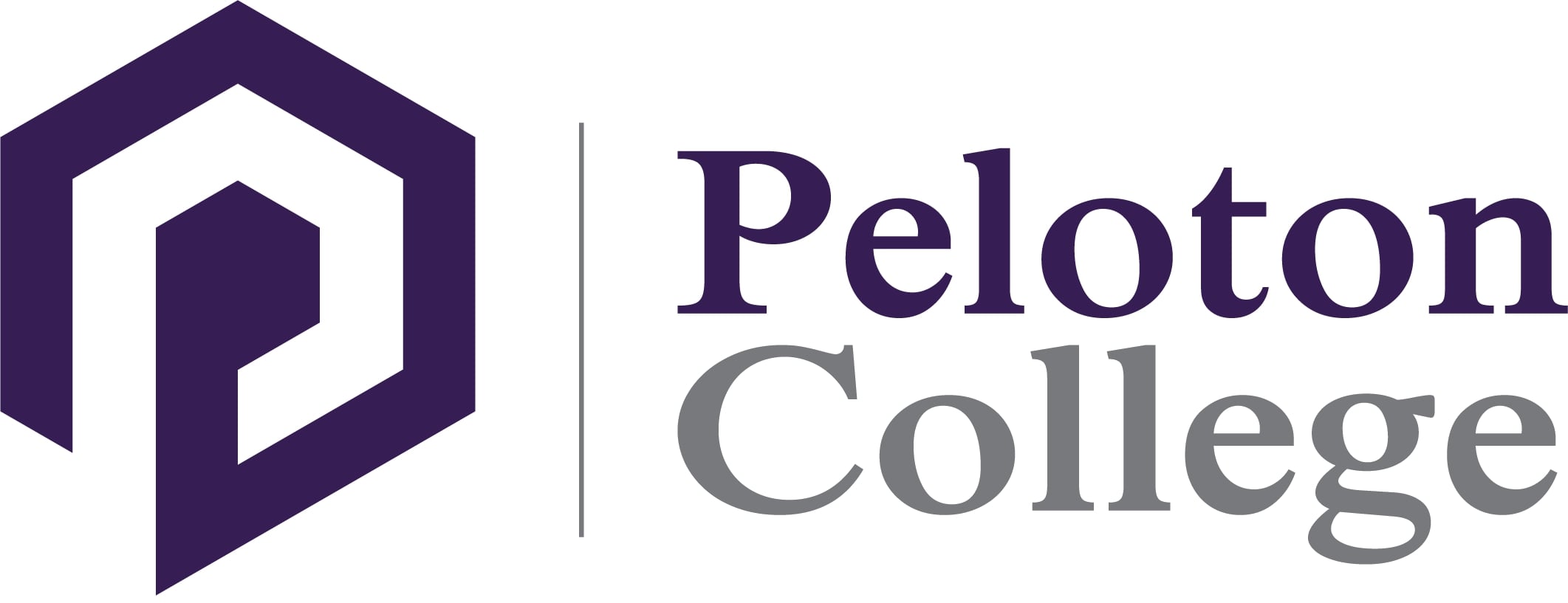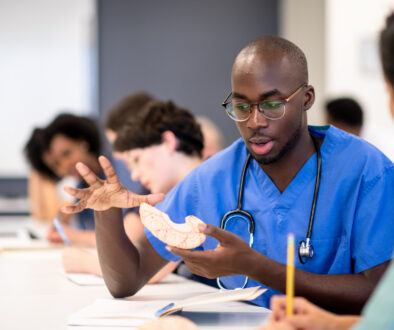What is the Role of Medical Assistants in Caring for Aging Patients?

The demographics in America are changing. By 2030, the senior population will nearly double, according to the World Health Organization. More than 100 million older adults will become greater healthcare consumers. Still, with all hands on deck, there are too few healthcare workers to meet aging patient’s needs.
The medical community needs more doctors, nurses and first responders. However, support specialists are also required to manage the business and logistics of medicine. Medical assistants have the broad range of skills necessary to help aging patients at the acute and community levels. Allied health professionals, their star is rising.
What Is Geriatrics in Healthcare?
Geriatrics is the branch of healthcare concerned with the unique needs of aging patients. Related to gerontology, the study of aging in its many forms, it’s centered on adults aged 55 and up.
Holistic and evidence-based, goals include:
- Improving the longevity of seniors
- Enhancing aging patient’s quality of life
- Reducing hospitalizations
- Promoting physical and psychosocial well-being
- Fostering independence
This is accomplished in four key ways:
Preventive Care
Too many aging patients lose their autonomy to preventable medical conditions from osteoporosis to pneumonia. Geriatric health professionals work to identify and treat these issues before they cause a life-threatening illness or injury.
Chronic Disease Management
Almost 80% of seniors has a chronic disease, such as diabetes or heart failure, according to the National Council on Aging. By managing these conditions, geriatricians reduce unnecessary hospitalizations due to symptom exacerbations or complications.
Medication Management
Prescription drugs are double-edged swords. Taken as directed, they’re lifesavers. Yet medication errors are among the top causes of injury in aging patients.
Polypharmacy, the use of multiple drugs, is common among elderly patients with memory deficits. Geriatric specialists help patients keep track of their medications, so they reap only the benefits and not the risks.
Psychosocial Support
Helping aging patients manage their emotional and social needs is the key to longevity. From depression treatment and recreational opportunities to safe housing and meal support, interventions bolster their independence and well-being.
What Is the Role of Medical Assistants in Caring for Aging Patients?
Medical assistants care for patients of all ages, but they play a special role in geriatrics. As frontline support professionals, they interact with aging patients on many levels, each is an opportunity to make a difference. How is largely defined by where you’re employed.
Where Do Medical Assistants Work Helping Seniors?
Medical assistants can help aging patients wherever they work, but they have more of an impact in some settings than others.
Hospitals
Medical assistants have several roles in hospitals, including as medical records specialists, account representatives and unit clerks. In a hospital, you’ll help seniors by:
Retrieving Past Records – Many aging patients see their primary care physicians and at least five specialists per year. And they visit emergency rooms at twice the rate of younger people. The more physicians that are involved in a patient’s care, the more likely it is that polypharmacy will become an issue. Working in a records department, you’ll ensure that doctors get the information they need to provide appropriate care.
Being a Financial Advocate – Insurance companies cover most bills in the United States, but aging patients are particularly confused by invoicing errors. Billing is complex, and older patients with cognitive impairments may have difficulty understanding the process. As a patient account representative and financial advocate, you’ll help older adults interpret their hospital bills.
Acting as a Concierge – A concierge helps hotel guests make the most of a trip. Medical assistants play a similar role in hospitals. As the unit clerk in a day surgery unit, for example, you’ll confirm appointments, offer directions, reinforce preparation instructions, and arrange door-to-unit wheelchair transportation, if necessary.
And, sadly, many aging patients are on their own with no family or friends to help them when they visit the hospital, so you’ll help monitor them for safety while they’re there.
Long-Term Care Facilities
Roles for medical assistants in nursing homes and assisted living centers are typically administrative. Regulations prevent most clinical involvement. Still, it’s all related in a residential facility, so medical assistants can still make a significant impact. In a long-term care facility, you may:
Help Manage Patient Their Finances – Residents in nursing homes and assisted living centers may need help managing their money. Working in the office, you’ll help them access cash, make bank deposits and pay their bills on time.
Arrange Outside Transportation – Many nursing homes and assisted living patients require medical transportation, such as ambulance or wheelchair van services, to take them to doctor’s visits or recreational events. As a transportation aide, a medical assistant schedules the appropriate rides and completes the documentation necessary for insurance reimbursement.
Assist with Marketing – Assisted living communities are popping up nationwide. A step below nursing homes, they offer less medical supervision than a nursing facility but a higher level of personal assistance than aging patients can get at home.
Nurses, nursing assistants and medication technicians handle most clinical needs, but medical assistants can manage marketing and non-clinical services. You’ll give tours to prospective applicants and arrange for meal, transportation, and financial services for residents.
Other responsibilities include planning fun activities and offering companionship with benefits. With some clinical training, medical assistants can report changes in condition to licensed clinicians or family members.
Government Agencies
Government agencies hire medical assistants to manage health-related tasks that don’t need the attention of a licensed healthcare provider. Working in a public health department, for example, you may participate in vaccine clinics, giving flu shots to aging patients. In a social service setting, you may help the elderly apply for home health assistance programs.
Doctor’s Offices
Roles for medical assistants are expanding, but most are still employed in doctor’s offices. For aging patients, this is where they make the most impact. Primary care practices serve as gateways to community services. With a single referral, aging patients can access the support services they need. Medical assistants help by:
Triaging Phone Calls – Medical assistants help manage the schedule, triaging care in priority order. When aging patients call, they listen for clues that signal trouble and arrange for the soonest possible visit. If they suspect an emergency, they discuss it with the doctor immediately.
Doing Brown Bag Reviews – Polypharmacy is a leading cause of injury among seniors. The best defense is a brown bag review. Brown bag reviews started in the 1980s in response to growing concerns about the misuse of medications. Clients are asked to fill a bag with all of the prescription drugs, over the counter (OTC) medicine and supplements they use regularly. Medical assistants then review them for improper use or interactions.
If, for example, a senior has used half of a 90-day prescription in two weeks, they’re taking extra doses. If they have too many pills left over, they’ve missed doses. Most seniors have mild, age-related memory deficits, and some are not aware that prescription drugs can interact with OTC preparations. Catching medication issues early is the best way to prevent adverse effects.
Performing Diagnostic Tests – Travel can be tough for seniors, so making fewer trips improves accessibility to care. Medical assistants can do a variety of diagnostic tests, such as electrocardiograms and urinalysis, in office settings, saving aging patients a time-consuming hospital visit.
Medical assistants also perform symptom screens for issues important to aging patients, such as depression, home safety and financial worries. It’s the first step to knowing which support services patients need to stay happy and independent at home.
Updating Medical Records – Nothing is more important to the continuity of care than an accurate record of past care. When aging patients visit a specialist or the emergency department, quick access to the correct data helps doctors make safe treatment decisions. Medical assistants help by verifying, updating, and correcting demographic and medical information at each visit.
Reporting Clinical Observations – Medical assistants work closely with patients upon their arrival. They’re in a good position to notice changes in their physical or mental condition. Did they need more assistance than usual to walk to the exam room? Or repeated directions to perform simple tasks? Flagging unusual symptoms makes the doctor aware that something is amiss.
Providing Preventive Care Services – the single most effective way to keep older adults healthy. Medical assistants participate in many ways from taking vital signs to administering influenza and pneumonia vaccines. Seniors can also forget to call their doctors at times, so medical assistants reach out when essential services are overdue. Staying connected is critical.
Building Therapeutic Relationships – among the most meaningful things medical assistants do for aging patients and their families. Getting to know them is the key to understanding their needs, cultivating trust, and developing good rapport. As the point of first contact for clients and their caregivers, the warmth and professionalism with which medical assistants represent the clinical team can make or break a senior’s confidence in their providers. Only when seniors feel comfortable are they willing to ask for help.
How Do You Become a Medical Assistant?
Becoming a medical assistant can be as easy as completing a vocational school program. Training is comprehensive yet brief because programs are laser-focused on job skills. By eliminating unnecessary electives, students graduate with a diploma in months, not years, prepared for an entry-level position and the same certifications as their college-educated peers. Perks like small class sizes, lifestyle-friendly schedules, industry-experienced instructors, and job placement services make vocational training one of the best values in modern education.
Final Thoughts
American seniors will soon need more care than the system is equipped to provide. The good news for compassionate, wellness-oriented problem solvers is that this creates unprecedented career opportunities. If your job doesn’t fulfill you, and it’s time for something new, becoming a medical assistant is a win for you and your community.
Want to Learn More?
The objective of this Medical Assistant training program at Peloton College is to prepare the student for employment as an entry-level Medical Assistant performing administrative, clerical, and clinical duties within the health care field.
The mission of Peloton College is to be the premier provider of hands-on training and education by providing students and graduates with the necessary skills to secure occupational careers. Contact us today to learn more.



